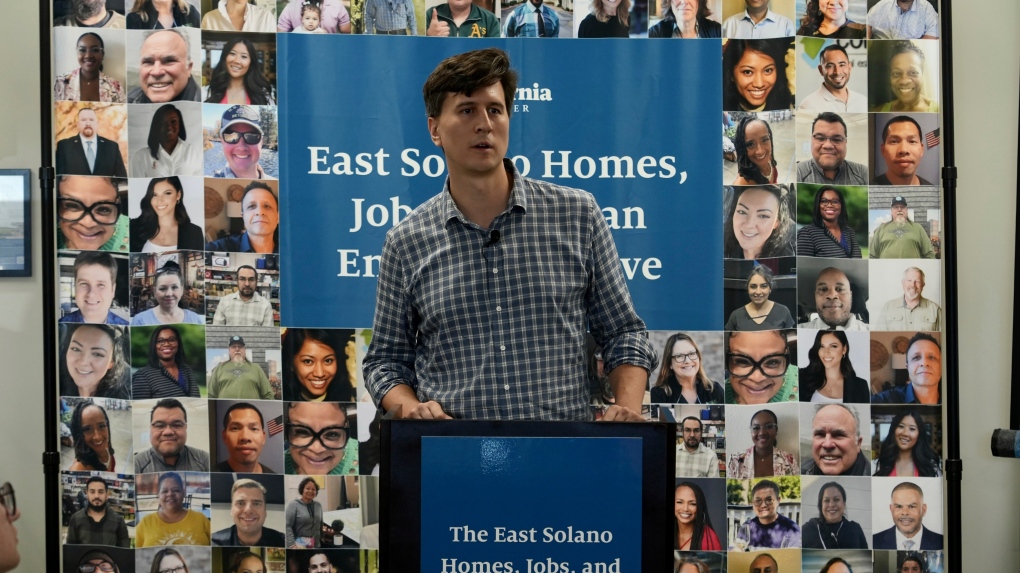
Campaign to build new California city submits signatures to get on November ballot
CTV
A wealthy Silicon Valley-backed campaign to build a green city for up to 400,000 people in the San Francisco Bay Area has submitted what it says are enough signatures to qualify the initiative for the November election.
A wealthy Silicon Valley-backed campaign to build a green city for up to 400,000 people in the San Francisco Bay Area has submitted what it says are enough signatures to qualify the initiative for the November election.
The campaign submitted more than 20,000 signatures but would need only about 13,000 valid ones to qualify for the ballot. If verified by Solano County’s elections office, voters will decide in the fall whether to allow urban development on land currently zoned for agriculture. The land-use change would be necessary for the development to be built.
Jan Sramek, a former Goldman Sachs trader who heads the company behind the campaign, California Forever, said at a news conference Tuesday that he heard from thousands of people who want careers and homes in the county where they grew up but can no longer afford because of high housing costs and a lack of nearby work.
“They are fed up with this malaise that's plagued California for the last 20 years with this culture of saying no to everything that has made it increasingly impossible for working families to reach the California dream,” he said.
The yet-unnamed development would mix homes, green space, a walkable downtown and jobs between Travis U.S. Air Force Base and the Sacramento River Delta city of Rio Vista, Calif. Sramek said he expects to start with 50,000 residents within the next decade, with homes starting at US$400,000. The median sale price of a home in March was closer to US$600,000, according to Redfin.
The controversial project has wealthy and powerful backers, including philanthropist Laurene Powell Jobs and venture capitalist Marc Andreessen. The campaign declined to disclose how much money they spent to collect the signatures, saying that information would be available eventually.
It also faces strong opposition by some elected officials and other critics who say Sramek’s plan is a speculative money grab that’s light on details.
